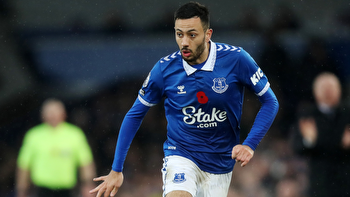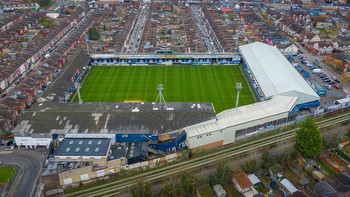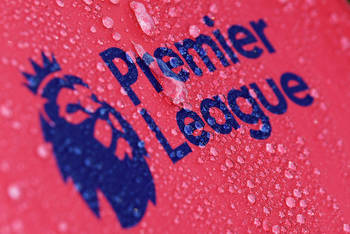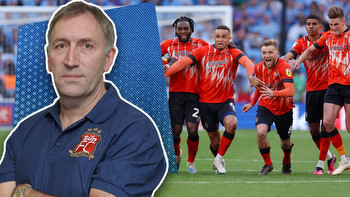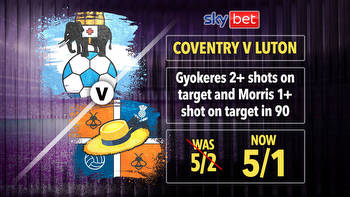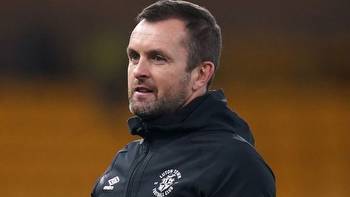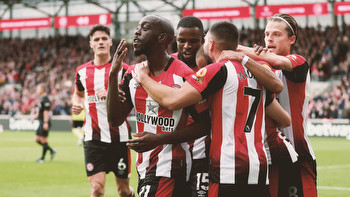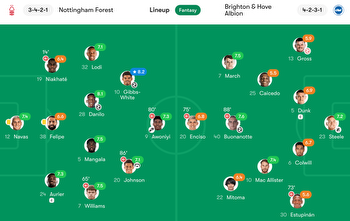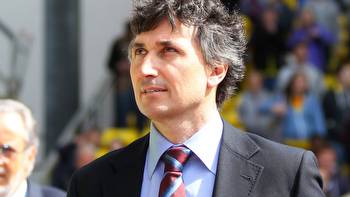Luton Town's remarkable journey from non-league to Premier League brink after 31-year exile
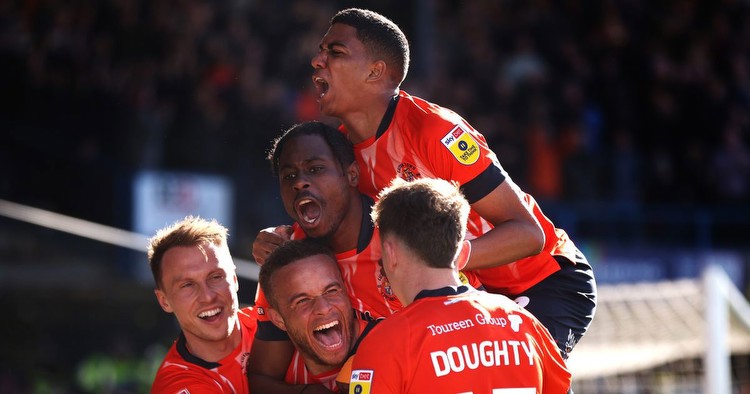
To keep the mood light in training, players won fun-size Mars bars for winning obstacle races and slaloms through the poles.
A special guest hitched a ride on the coach as lucky mascot – Raddy Antic, scorer of the most famous goal in Luton Town's history, the dramatic late winner which sent Manchester City down and Hatters manager David Pleat galloping triumphantly across the Maine Road pitch in his beige suit. And it was all to no avail.
Luton lost 2-1 at relegated Notts County on the last day of term, slipped out of the top flight 31 years ago – and they have never been back, taking in five seasons of non-League scenery before starting the return climb from rock bottom. Remarkably, they are on course to complete the ascent from the Blue Square Conference potting shed to the Premier League penthouse in less than a decade.
Time-warp Kenilworth Road, where Millwall hooligans rearranged the furniture in 1985, has barely changed – apart from executive conservatories replacing the old Bobbers stand – and, for all the old girl's atmosphere, it will never win an architects' beauty contest.
Luton have been warned they will need to spend up to £10 million to upgrade the old girl to meet Premier League requirements for a venue holding around 9,500 when the works are complete. And for delicious intrigue, they are now camped at the gates of aristocracy on the back of a 12-match unbeaten run after installing Rob Edwards – jilted by arch-rivals Watford after just two League defeats – as manager.
Luton will be top seeds in next month's play-offs if they win at Blackburn on Monday and Hatters godfather Pleat, who orchestrated the club's finest decade in the 1980s, loves it.
“It says much for the new manager, and the way he has alternated his squad so cleverly, that they have been so consistent,” said Pleat, now 78. “You have to give Rob Edwards credit for the way he withstood the upset and trauma of losing his position after just 10 games at Watford – and to the board for taking what was undoubtedly a brave decision to hire him.
“If you look at other examples of a manager who has worked on both sides of a partisan divide, there are not many success stories among them. Terry Neill and George Graham were never really allowed to forget their Arsenal connections at Tottenham, and Rafa Benitez going to Everton last season didn't work out for him after his long affiliation with Liverpool.
“To take someone discarded from fairly 'hostile' territory, and see him do such a good job, has been commendable for all concerned. From what I hear, Edwards has kept the dressing room united – there are no language barriers, which can be a problem because it does breed cliques – and it would be a remarkable achievement if Luton completed the journey from non-League to the Premier League in nine years.
“To some, they might have a ramshackle old stadium, but even though it only holds 10,000 people it's atmospheric and it has been a great platform for players to come in from Accrington, Rochdale or Cambridge and perform in a vibrant environment. Between them, they have done a superb job and I couldn't be more pleased for them.”
Pleat presided over one of English football's great underdog stories during his 12 years in charge over two spells in Bedfordshire's hinterlands. Apart from that miraculous escape from relegation at Maine Road in 1983 – Antic, who died in 2020, is sadly no longer with us - he built the team who won Luton's only major trophy.
This week marked the 35th anniversary of their 3-2 win against Arsenal in the League Cup final in 1988, a triumph that made Pleat “sad but proud.” Although he had left for Tottenham two years earlier, nine of the side at Wembley that day were signed by him.
He admitted: “If you had told me, on the day Luton were relegated in from the old First Division in 1992, missing out on the inaugural season of the Premier League, that it would be more than 30 years before they were back in the top division, I would have hoped they would get back quicker. But I would have been even more surprised by some of the horrors awaiting the club further down the track.
“I'm thrilled for Mick Harford, who I believe has been a real driving force behind recruitment, because he was in charge when the club was relegated out of the Football League in 2009.
“He was given an impossible job when they were deducted 30 points in one fell swoop. I felt they were badly treated, that it was a terrible punishment to absorb – although, in fairness, I never saw the full charge sheet - and the supporters have never forgiven the authorities for it.
“They felt so demoralised, but adversity made them stronger. But they have been in good hands for the last 10 years: John Still, Nathan Jones and now Edwards have all been terrific appointments, with Mick providing the continuity. And much bigger clubs than Luton have suffered prolonged absence from the Premier League – Leeds, Nottingham Forest and Sheffield Wednesday among them – so we must not devalue their achievement.
“Whatever happens over the rest of this season, they have beaten the odds on one of the lowest budgets in the Championship.”

